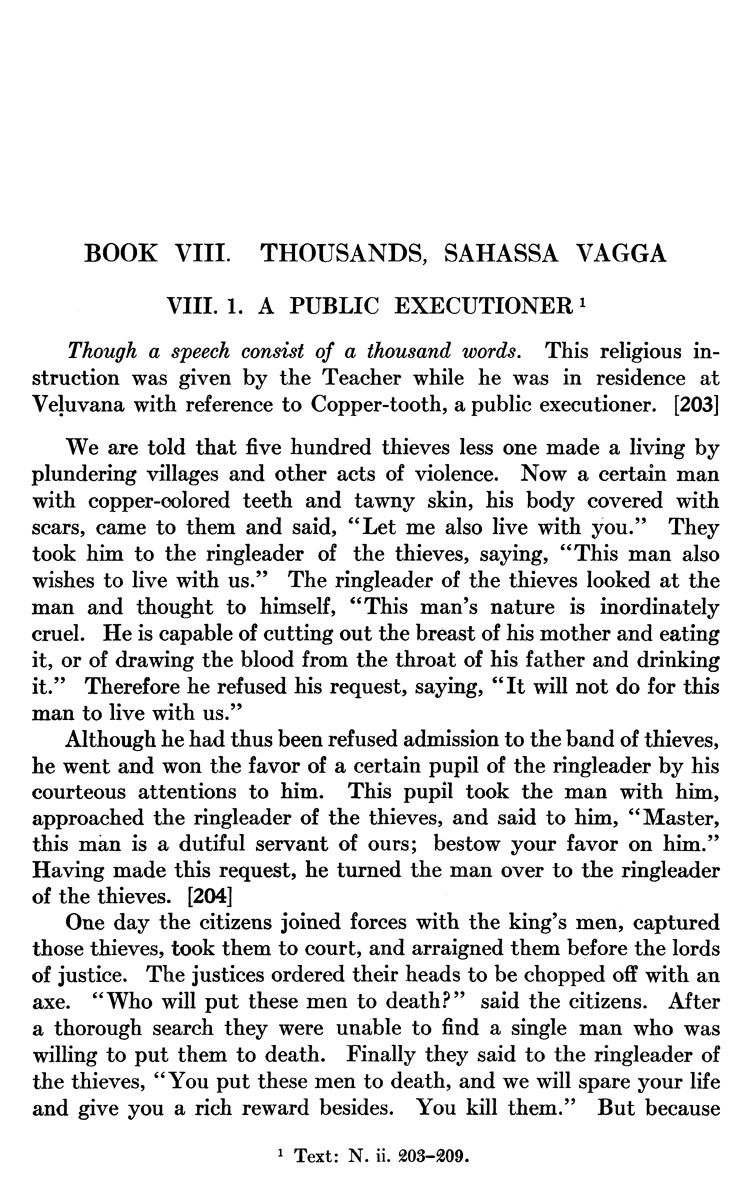BOOK VIII. THOUSANDS, SAHASSA VAGGA
VIII. 1. A PUBLIC EXECUTIONER ^
Though a speech consist of a thousand words. This religious in¬
struction was given by the Teacher while he was in residence at
Veluvana with reference to Copper-tooth, a public executioner. [203]
We are told that five hundred thieves less one made a living by
plundering villages and other acts of violence. Now a certain man
with copper-colored teeth and tawny skin, his body covered with
scars, came to them and said, "Let me also live with you." They
took him to the ringleader of the thieves, saying, "This man also
wishes to live with us." The ringleader of the thieves looked at the
man and thought to himself, "This man's nature is inordinately
cruel. He is capable of cutting out the breast of his mother and eating
it, or of drawing the blood from the throat of his father and drinking
it." Therefore he refused his request, saying, "It will not do for this
man to live with us."
Although he had thus been refused admission to the band of thieves,
he went and won the favor of a certain pupil of the ringleader by his
courteous attentions to him. This pupil took the man with him,
approached the ringleader of the thieves, and said to him, "Master,
this man is a dutiful servant of ours; bestow your favor on him."
Having made this request, he turned the man over to the ringleader
of the thieves. [204]
One day the citizens joined forces with the king's men, captured
those thieves, took them to court, and arraigned them before the lords
of justice. The justices ordered their heads to be chopped off with an
axe. "Who will put these men to death?" said the citizens. After
a thorough search they were unable to find a single man who was
willing to put them to death. Finally they said to the ringleader of
the thieves, "You put these men to death, and we will spare your life
and give you a rich reward besides. You kill them." But because
1 Text: N. ii. 203-209.
|








